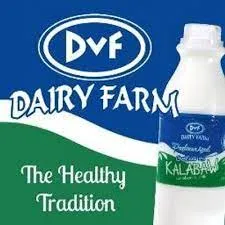DVF is a dairy farm located in the province of Talavera, Nueva Ecija. This province is a major contributor of agricultural output for the Philippines, particularly that the two of the country’s best agricultural institutions are situated there, namely: Philippine Carabao Center and Central Luzon State University. Farmers in the province are highly dependent on rice production. This is particularly because a huge tract of the province’s land has natural irrigation, which aids in the quantity and quality of their rice produce. Rice farmers harvest between 8,400-11,200 kilograms of milled rice every year. However, 70% of their total revenue from this are spent buying seeds, fertilizers and pesticides and are allotted for labor. This means they are left with 30% of profit, which they can use for their daily family needs and sustenance. Because of hard life, some of them would go to other nearby towns to look for employment.
These typical farmers need additional revenues. Dairy farming could be one. It could motivate them, but they need to be trained. Carabao raising is a factor for production of milk. These farmers probably are familiar with it but have little or no knowledge about nurturing the carabaos and milking them. They need to learn skills in nurturing and milking and must change their work attitudes. Many of them had been used to their ways of doing things. They are not teachable because they simply want to adhere to their old habits of being lazy and stubborn.
DVF envisions itself to be a “pioneering” company that provides livelihood opportunities to farmers in Nueva Ecija, by creating a market for their milk produce. Its processing plant is built on a 2,000 meter lot, located at the national highway of Barangay Poblacion Sur in Talavera, Nueva Ecija. It is equipped with world-class facilities used for basic dairy production at the same product line expansion.
Danny Fausto, the owner of DVF, knows how to raise and care for carabaos because he devoted time for self-study and consultations with experts. These efforts and his experiences gave him ideas about the logistical challenges of investing into carabao milk production at the commercial level. He learned that the quality of carabao and forage impacts milk production.
Fausto maintains 150 carabaos which are consistent with DVF’s quantity and quality requirement and these carabaos are still growing in numbers. The good thing about him is, he already had agents who go around the whole town of Talavera to sell DVF fresh milk. With this alone, DVF was already earning.
However, DVF was reliant on Talavera Dairy Cooperative Incorporated (TDCI) for feed stocks and medicines for the health and nutrition of its carabaos, financial and technical assistance for farmers and assurance of milk supply and quality. This means he did not have the means to monitor and control how the carabaos were taken care of, how the farmers responded to the training being given to them, and how the milk was collected. He just paid for the available milk delivered by TDCI to DVF.
Also, DVF cannot meet the peak demand every yuletide season because TDIC itself could not meet the quantity and quality DVF requires, despite being paid for $12 per carabao of the 150 under its care. Such is due to the following:
a. Urban Migration – As mentioned above, farmers need extra income, so what others do is go to other nearby cities and take a chance of getting a job not related to their old job. This is in the hope that they would get higher pay than what they earn from farming. This results in their abandonment of farmlands and entrusting them to their families who are not really knowledgeable about the responsibilities of a farmer.
b. Laziness – Farmers refuse to adapt to new ways of doing things. They do not want to follow new techniques on how to nurture and feed animals.
c. Stubbornness – This is their nature. Since the older generation passed the old ways of farming like a legacy, farmers have imbibed in their minds that they have to continue whatever was passed to them even if some are no longer applicable these days. They are closed-minded and think that the old ways are the right way of doing farming.
d. Unreliability – This is also common among folks in rural areas. They cannot stick to agreements and commit. They would say “yes” initially, but they easily change their mind when they find something difficult to do on their part.
Lastly, carabaos under DVF’s care are only ready for lactation between January to March. They reserve their milk for their newborns when they give birth during the same season. Therefore, DVF’s available supply is just enough to shoulder his obligations to his institutional customers.
Knowing the story of DVF and looking at its strengths and weaknesses, makes me sad if its operations cannot continue. I was delighted to know that there is a company willing to work with our farmers, considering that they have been receiving very little support from our government.
I will have further assessment of DVF’s Management Program after this article and provide you with the Alternative Courses of Action, Recommendation and Implementation Plan I have thought of which you may find interest in.
Thanks for reading this article and please standby for the next one!


